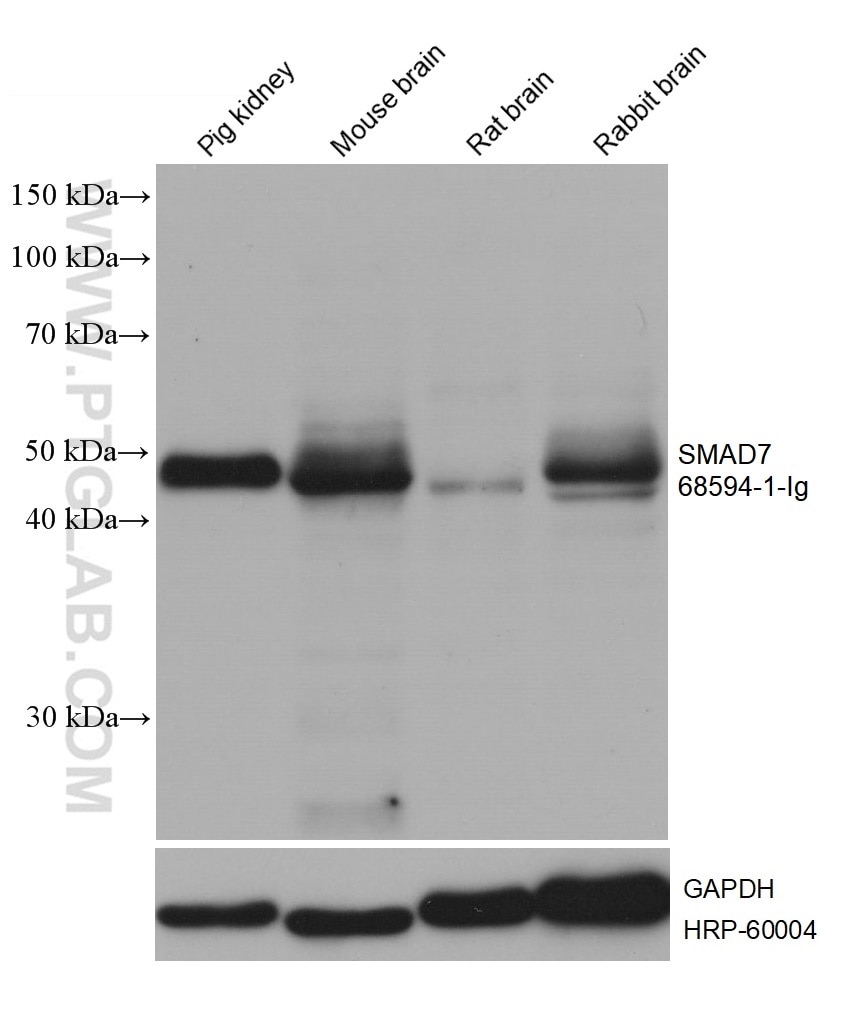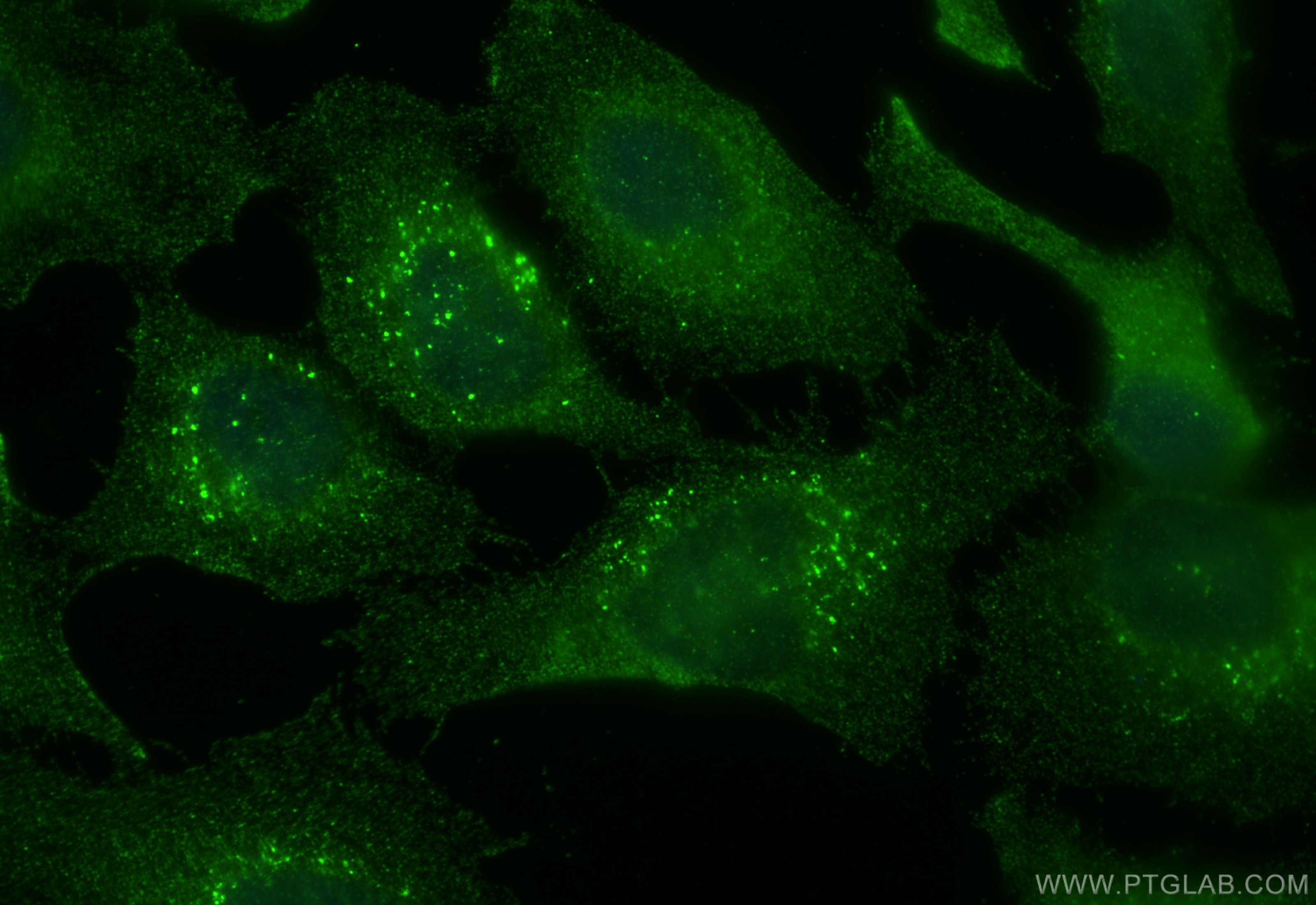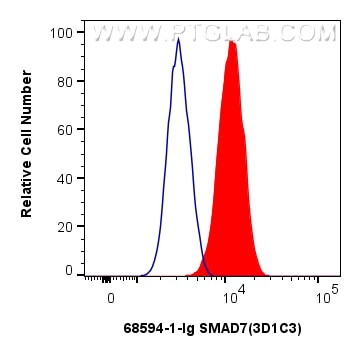Anticorps Monoclonal anti-SMAD7
SMAD7 Monoclonal Antibody for WB, IF/ICC, FC (Intra), Indirect ELISA
Hôte / Isotype
Mouse / IgG2a
Réactivité testée
Humain, Lapin, porc, rat, souris
Applications
WB, IF/ICC, FC (Intra), Indirect ELISA
Conjugaison
Non conjugué
CloneNo.
3D1C3
N° de cat : 68594-1-PBS
Synonymes
Galerie de données de validation
Informations sur le produit
68594-1-PBS cible SMAD7 dans les applications de WB, IF/ICC, FC (Intra), Indirect ELISA et montre une réactivité avec des échantillons Humain, Lapin, porc, rat, souris
| Réactivité | Humain, Lapin, porc, rat, souris |
| Hôte / Isotype | Mouse / IgG2a |
| Clonalité | Monoclonal |
| Type | Anticorps |
| Immunogène | SMAD7 Protéine recombinante Ag13688 |
| Nom complet | SMAD family member 7 |
| Masse moléculaire calculée | 426 aa, 46 kDa |
| Poids moléculaire observé | 45-55 kDa |
| Numéro d’acquisition GenBank | BC074819 |
| Symbole du gène | SMAD7 |
| Identification du gène (NCBI) | 4092 |
| Conjugaison | Non conjugué |
| Forme | Liquide |
| Méthode de purification | Purification par protéine A |
| Tampon de stockage | PBS only |
| Conditions de stockage | Store at -80°C. 20ul contiennent 0,1% de BSA. |
Informations générales
SMAD7, also named as Mothers against decapentaplegic homolog 7, is a 426 amino acid protein, which belongs to the dwarfin/SMAD family. SMAD7 Interaction with NEDD4L or RNF111 induces translocation from the nucleus to the cytoplasm (PubMed:16601693). TGF-beta stimulates its translocation from the nucleus to the cytoplasm. PDPK1 inhibits its translocation from the nucleus to the cytoplasm in response to TGF-beta (PubMed:17327236). SMAD7 as antagonist of signaling by TGF-beta type 1 receptor superfamily members has been shown to inhibit TGF-beta and activin signaling by associating with their receptors thus preventing SMAD2 access. SMAD7 functions as an adapter to recruit SMURF2 to the TGF-beta receptor complex and also acts by recruiting the PPP1R15A-PP1 complex to TGFBR1, which promotes its dephosphorylation. SMAD7 positively regulates PDPK1 kinase activity by stimulating its dissociation from the 14-3-3 protein YWHAQ which acts as a negative regulator.







